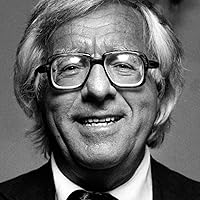Cynics Quotes
Quotes tagged as "cynics"
Showing 1-20 of 20

“Never surrender your hopes and dreams to the fateful limitations others have placed on their own lives. The vision of your true destiny does not reside within the blinkered outlook of the naysayers and the doom prophets. Judge not by their words, but accept advice based on the evidence of actual results. Do not be surprised should you find a complete absence of anything mystical or miraculous in the manifested reality of those who are so eager to advise you. Friends and family who suffer the lack of abundance, joy, love, fulfillment and prosperity in their own lives really have no business imposing their self-limiting beliefs on your reality experience.”
―
―

“Some people are in such utter darkness that they will burn you just to see a light. Try not to take it personally.”
―
―

“True cynics kill themselves. The rest are posers, trying to use clever sarcasm and snarky remarks to hide insecurity and the fear that if they put themselves out there, they will fail.”
― Never Broken: Songs Are Only Half the Story
― Never Broken: Songs Are Only Half the Story

“Scratch the surface of any cynic, and you will find a wounded idealist underneath. Because of previous pain or disappointment, cynics make their conclusions about life before the questions have even been asked. This means that beyond just seeing what is wrong with the world, cynics lack the courage to do something about it. The dynamic beneath cynicism is a fear of accepting responsibility.”
― Faith and Doubt
― Faith and Doubt
“A cynic is just a wounded romantic.”
― The Power of the Dark Side: Creating Great Villains, Dangerous Situations, & Dramatic Conflict
― The Power of the Dark Side: Creating Great Villains, Dangerous Situations, & Dramatic Conflict

“Will any of those men under you ever really understand all this? They're professional cynics, and it's too late for them. Why do you want to go back with them? So you can keep up with the Joneses? To buy a gyro just like the Smith has? To listen to music with your pocketbook instead of your glands?”
―
―
“Isn't it strange how the most lethal cynics are often the most optimistic creative dreamers?”
―
―
“We discover truth by asking rapier-like questions that cut through the thick fog of doctrinarism. Artists and philosophers must be subversive: we need these rebellious cynics to ask questions, they must resist cultural norms; seek out truths that are not self-evident and challenge everything. Doubt, not blind belief, is essential for discovering truth.”
― Dead Toad Scrolls
― Dead Toad Scrolls

“And then comes the realization. That although a house was taken from you, you can still build a home in a wine jar.”
―
―

“This world if full of people who don't have a loving heart. People who are self centered and can't even bring a smile to another person's face. These people have to change themselves before they become cynics. The world needs love and kindness. The indifference of people will not make them heroes of the world!
- Avijeet Das”
―
- Avijeet Das”
―

“This world is full of people who don't have a loving heart. People who are self-centered and can't even bring a smile to another person's face. These people have to change themselves before they become cynics. The world needs love and kindness. The indifference that a majority of people have will not make these people the heroes of the future!”
―
―

“Most radical of all in their scepticism were the Cynics. From Diogenes until the last ‘dogs’ of the ancient world, the Cynics defined themselves first by ‘snarling’ at the institutions, rituals, beliefs and assumptions by which their contemporaries lived. To list their different acts of critique would be to compose a long priamel: ‘Not this, not that, and definitely not that’, says the Cynic in his scorn for all things merely conventional. In his seemingly universal nay-saying, the Cynic avoids traditional clothes, jewellery and bodily adornments for his own ‘uniform’; he restricts his diet; does not live in a house; derides bathing, sports, the Games; scoffs at festivals, sacrifice, prayer and religious life generally; does not marry, dodges work and steers clear of the courts, assembly, army and other arenas of political participation. He even strives to bust out of old patterns of talking, and tosses up for himself a wild new language.”
― Cynics
― Cynics
“When the slave auctioneer asked him what he was skilled at, Diogenes said “At governing people,” and, pointing to a well-dressed buyer, he said “Sell me to that man, for he wants a master.”
―
―

“Antisthenes was not the first to differ significantly from the Hesiodic assessment of work. Rather, his proposition that ponos is a good rather than an unwelcome punishment was preceded by the emergence of an "industrious optimism" especially after the late fifth century. Optimistic man sets himself above environmental forces and asserts himself in the world as an indomitable force. Rather than accepting a god-given lot, he dares to "take fate by the throat." Rather than plodding the old furrows, he strikes out in a new direction, gives himself new tasks, implements his own plans, accepts his own failures. Some are more driven than others. The most ambitious impose upon themselves the greatest tasks and work incessantly for success. Some terrible restlessness goads these imperialists on, and as they hunt victory relentlessly they stamp down the weak and scoff at talk of justice. What do they want? It is hard to tell, since no success seems to satisfy them. Each triumph inspires new undertakings, each disaster resilient hope. They seem to toil on without end, as if human desire itself were infinite.”
― The Greek Praise of Poverty: Origins of Ancient Cynicism
― The Greek Praise of Poverty: Origins of Ancient Cynicism

“... For the first Cynics probably did not fight in any battles, and they certainly condemned war as another instance of the idiocy of custom (nomos). Critiques of war surface as early as Homer's Achilles; there is a strong deprecation of war in both Herodotus and intellectual communities like the Academy and Lyceum. In their idealism, the Cynics made such critiques far more radical. For, according to them, why would one fight a war? If it were for the sake of wealth or honor, then what are wealth and honor? True wealth is self-sufficiency, not the coin and plunder that contemporary mercenaries covet. Honor is but a word, a "mere scutcheon;' and the Cynics will have none of it. The feckless wars of the late fifth and fourth centuries could only deepen this sense of disillusion: now Athens, now Sparta, now Thebes, now Jason of Pherae, now Philip, now Antigonus, now Seleucus, now some other king is in the ascendant, each contending furiously for the hegemony and spot of distinction. Yet, in the end, all this ambition comes to nothing, for all its objects are subject to the caprices of Tuche; in the end, even Alexander is just a wanderer with his shadow. It is more honest to reject the false absolutes of wealth, honor, and fatherland. Wisdom is seeing through such false notions and freeing oneself from the tyranny of customary language and thought-patterns. The true absolute is the self and in the self, all other values are recovered.”
― The Greek Praise of Poverty: Origins of Ancient Cynicism
― The Greek Praise of Poverty: Origins of Ancient Cynicism
“Sincerity is frequently written off as an immature stance. Naiveté and earnestness often co-exist, but they are not necessarily the same thing. Naiveté is a simple lack of knowledge and experience. Earnestness is a way of BEING in the world: sometimes by default of innocence, but also as a conscious, informed choice to reject cynicism and live life in an authentic way. To be earnest is to face each day with an open spirit, as opposed to living one's life crouched in an impermeable, defensive posture. For many in our culture, it is a much greater sin to be a gullible idealist than a cruel cynic.”
― Art from Your Core: A Holistic Guide to Visual Voice
― Art from Your Core: A Holistic Guide to Visual Voice
All Quotes
|
My Quotes
|
Add A Quote
Browse By Tag
- Love Quotes 97k
- Life Quotes 75.5k
- Inspirational Quotes 72.5k
- Humor Quotes 43.5k
- Philosophy Quotes 29.5k
- Inspirational Quotes Quotes 27k
- God Quotes 26k
- Truth Quotes 23.5k
- Wisdom Quotes 23.5k
- Romance Quotes 23k
- Poetry Quotes 22k
- Death Quotes 20k
- Happiness Quotes 18.5k
- Life Lessons Quotes 18.5k
- Hope Quotes 18k
- Faith Quotes 18k
- Quotes Quotes 16.5k
- Inspiration Quotes 16.5k
- Spirituality Quotes 15k
- Religion Quotes 15k
- Motivational Quotes 15k
- Writing Quotes 14.5k
- Relationships Quotes 14.5k
- Life Quotes Quotes 14k
- Love Quotes Quotes 13.5k
- Success Quotes 13.5k
- Time Quotes 12.5k
- Motivation Quotes 12k
- Science Quotes 11.5k
- Knowledge Quotes 11k




